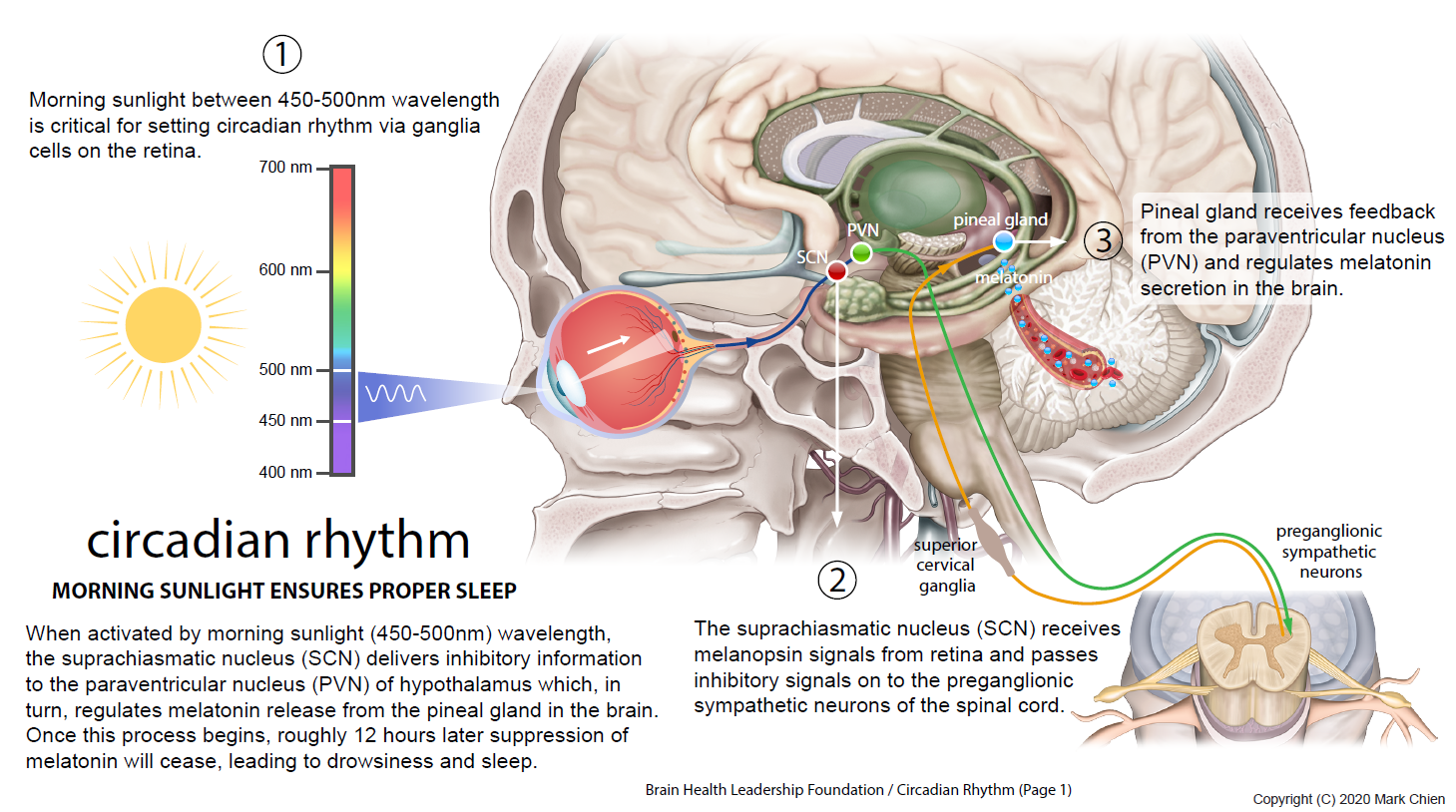
Sleep and Brain Health
Critical to brain health is the quality and timing of our sleep cycle, which is dictated by our DNA, and regulated by our exposure to sunlight in the morning. The sleep cycle, often known as our Circadian rhythm, is a key factor in our brain’s essential daily restoration and function.
How does morning light enhance sleep?
Blue light (450-500nm) is available in the sun’s light spectrum only in the morning, beginning at sunrise for about 4 hours. Exposure to this blue light regulates circadian rhythm by suppressing melatonin to keep you alert and awake during the day and releasing melatonin at night to help you sleep well. This important morning blue light can be blocked by window glass, glasses and lenses. Exposure to it in the morning can only help if it is not blocked from entering the brain through our eyes. Blue light exposure from electronic gadgets after sunset delays the release of melatonin, which is counterproductive to obtaining quality sleep. It is highly recommended to limit the use of electronic devices one-two hours prior to bedtime.
Why is sleep important, especially between 10pm-2am?
People are in restorative sleep in these earlier hours of the night. This deep sleep allows the body to regenerate, and allows the brain to cool, rest and recharge. If your brain does not get sufficient restorative rest, it will not function optimally. Maintaining healthy sleep habits plays an important role in obtaining the best results from EMBP.


